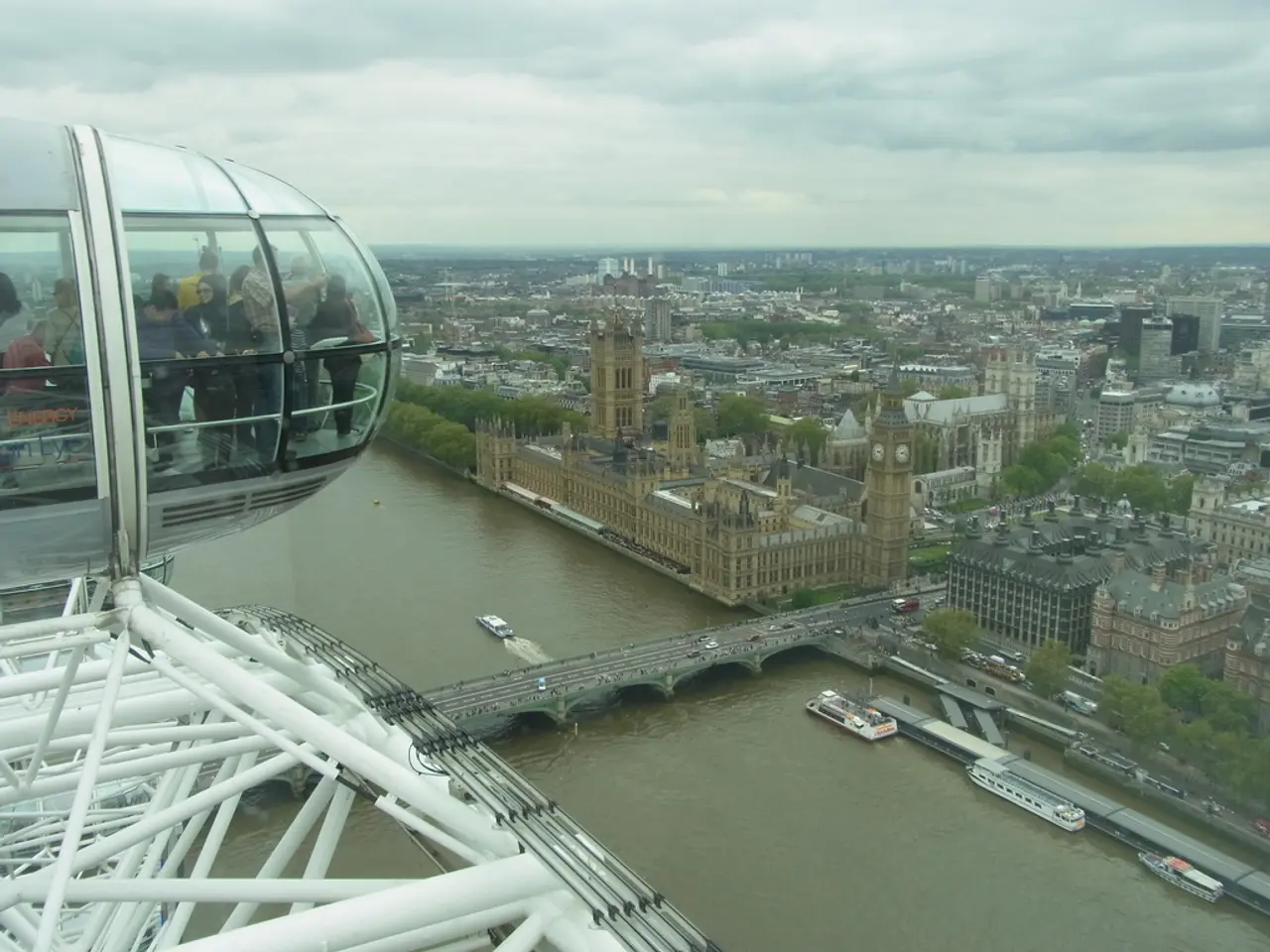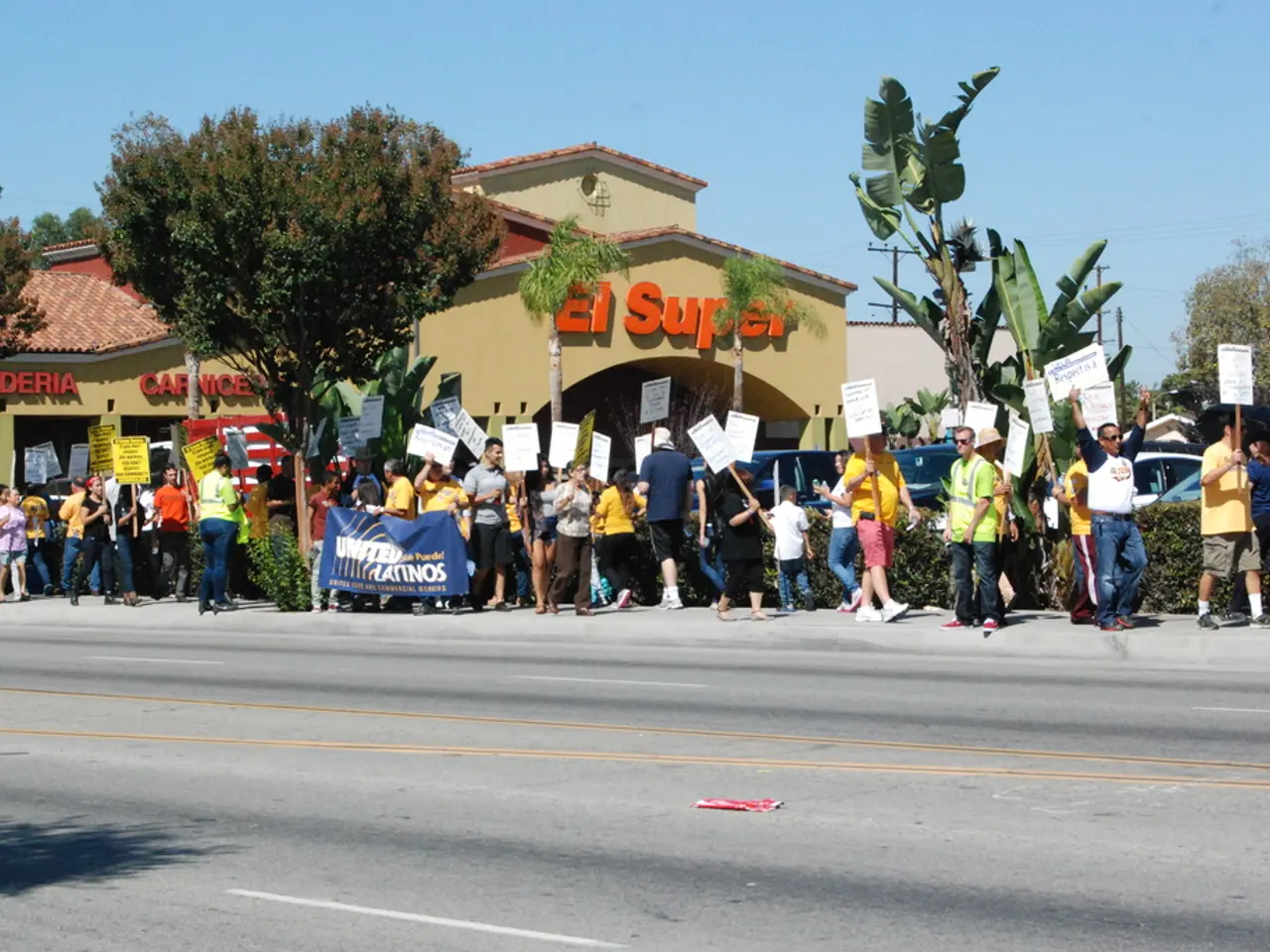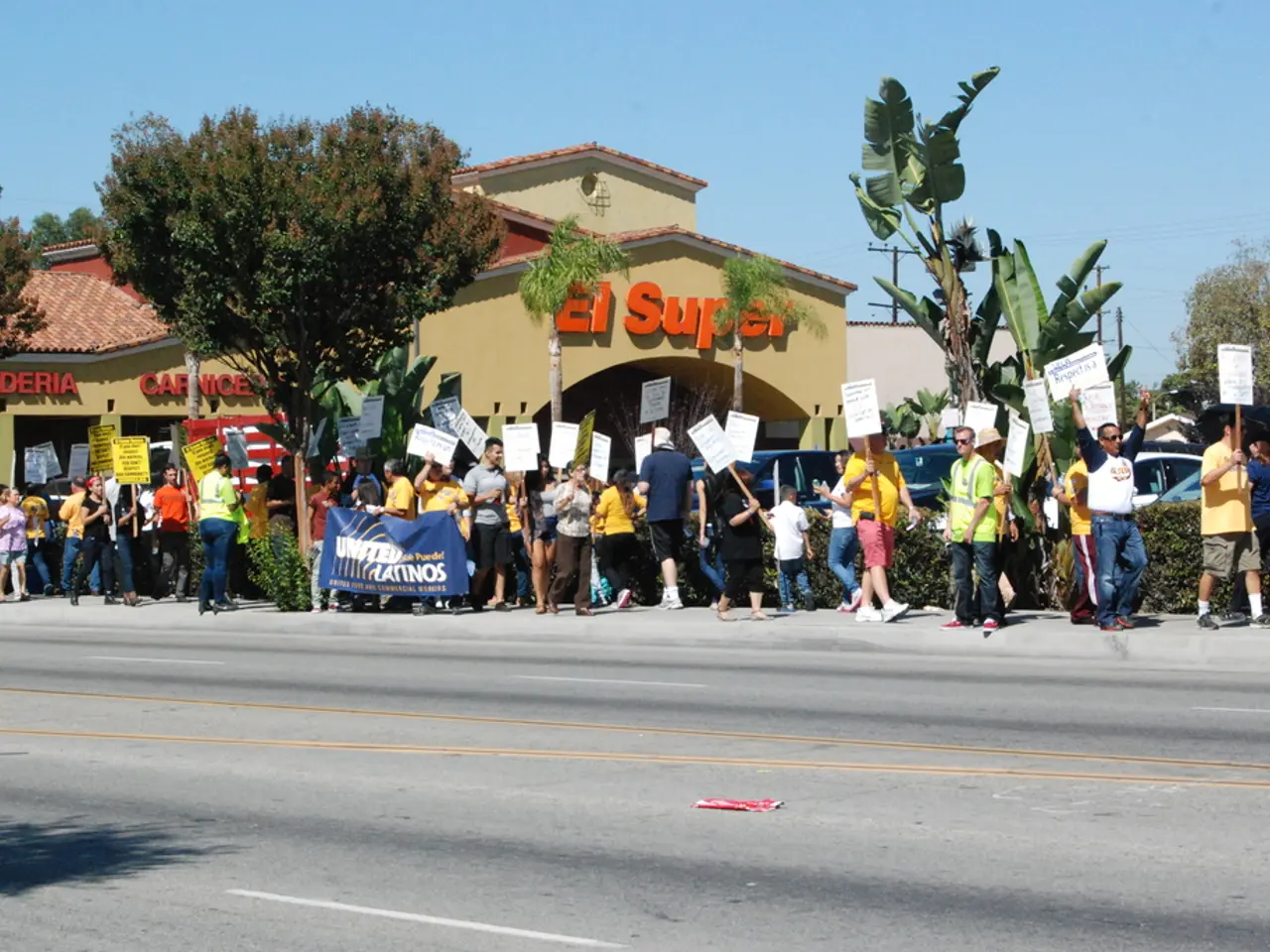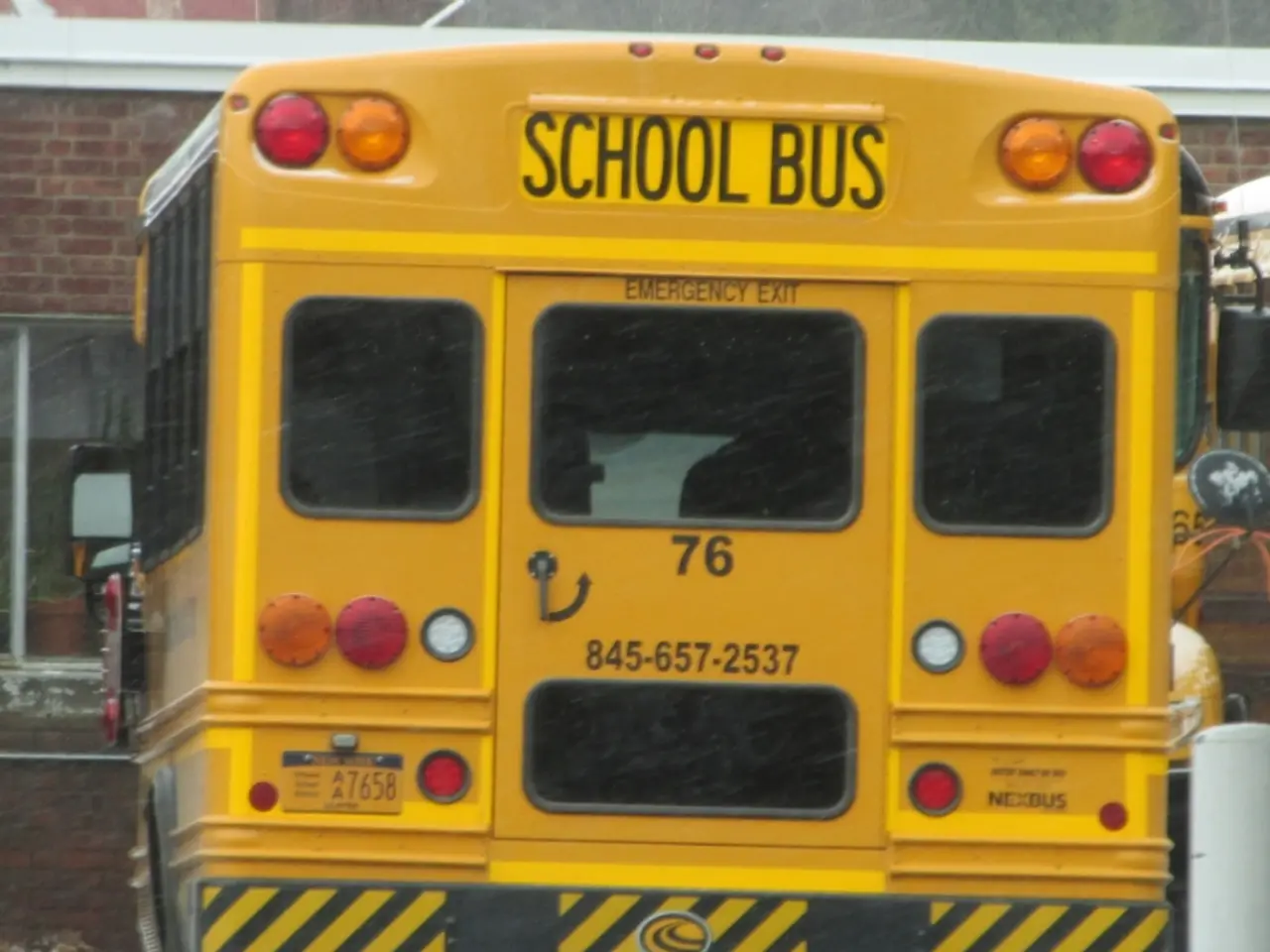Voter anxiety over immigration takes the lead, exclusive survey reveals
The Office for Budget Responsibility (OBR) has faced intense scrutiny over its measurements of the benefits of immigration to the UK economy. Amidst this debate, a senior OBR official has warned that relying on an increasing population to grow the economy is unsustainable due to the strain on public services and living standards[1].
Immigration is creating "serious problems" for public services and living standards, according to David Miles from the OBR. The increasing demand for public resources, as migrants age and have families, puts pressure on schools, hospitals, and welfare services[1].
This concern about fiscal sustainability and public service strain is shared by other leading economists and expert bodies. The Migration Advisory Committee (MAC) and other expert bodies have been more emphatic about the fiscal costs of mass immigration[2].
On the labor market and wages, data from the Migration Observatory at Oxford indicates that earnings trajectories for recent immigrants have been relatively flat at median levels. Changes in immigration policy, such as those post-Brexit, have affected the skill composition of migrants, with non-EU migrants increasingly including skilled workers[2].
Recent UK government policy changes reflect a strategic shift towards higher-skilled immigration as a means to balance economic needs with migration control. The introduction of restrictive immigration rules may negatively impact both migrant and British workers, businesses, and industries dependent on lower-skilled labor[3].
According to a YouGov poll, nearly half of Britons (45%) want zero net migration and mass deportations of those who arrived in the UK in recent years. This radical approach is backed by 86% of Reform UK and more than a quarter of Labour and Liberal Democrat (27% each)[4].
However, not all voters share this sentiment. Improving the cost of living is a top concern for 28% of voters, while one in 20 prioritize environmental protection and reducing carbon emissions[5]. Growing the UK economy is a key issue for 9% of voters, but reducing immigration is the single most important issue for 30% of voters according to research by City AM/Freshwater Strategy[6].
In the midst of these contrasting views, the UK government is focusing on raising the skill and salary thresholds for Skilled Worker visas, aiming to reduce net migration and promote economic productivity[3][4]. The economic impacts of this shift are complex, involving trade-offs between economic growth, labor market composition, public service capacity, and social welfare[1][2][3][4].
References: [1] The Guardian. (2021, October 12). Migrants are creating 'serious problems' for public services, warns senior OBR official. Retrieved from https://www.theguardian.com/uk-news/2021/oct/12/migrants-are-creating-serious-problems-for-public-services-warns-senior-obr-official [2] The Migration Observatory. (2021). Earnings and inequality: The impact of immigration on the UK labour market. Retrieved from https://www.migrationobservatory.ox.ac.uk/resources/briefings/earnings-and-inequality-the-impact-of-immigration-on-the-uk-labour-market/ [3] The Migration Advisory Committee. (2021). Skilled Worker Route: Review of the minimum salary threshold and the shortage occupation list. Retrieved from https://www.gov.uk/government/publications/skilled-worker-route-review-of-the-minimum-salary-threshold-and-the-shortage-occupation-list/skilled-worker-route-review-of-the-minimum-salary-threshold-and-the-shortage-occupation-list--2 [4] YouGov. (2021, June 21). More than half of Britons want to cut immigration. Retrieved from https://yougov.co.uk/topics/politics/articles-reports/2021/06/21/more-half-britons-want-cut-immigration [5] City AM. (2021, June 10). Reducing immigration is the single most important issue for 30% of voters, according to research by City AM/Freshwater Strategy. Retrieved from https://www.cityam.com/business/politics/research-reducing-immigration-single-most-important-issue-voters [6] The Times. (2021, June 10). Almost half of Britons want zero net migration and mass deportations of those who arrived in the UK in recent years, according to a YouGov poll. Retrieved from https://www.thetimes.co.uk/article/almost-half-of-britons-want-zero-net-migration-and-mass-deportations-of-those-who-arrived-in-the-uk-in-recent-years-according-to-a-yougov-poll-qn67gj6cw
- The debate on immigration's impact on the UK economy extends to various aspects of finance, including taxes and public service funding, as evidenced by the Migration Advisory Committee's emphasis on the fiscal costs of mass immigration.
- The intersection of politics, economy, and immigration policy has been highlighted in the discussions around the post-Brexit changes, which have influenced the skill composition of migrants and may affect both migrant and British workers.
- As the general news media continues to cover the UK government's strategic shift towards higher-skilled immigration, experts warn of the complex economic impacts, involving potential gains in productivity but also potential strains on public services and social welfare.






